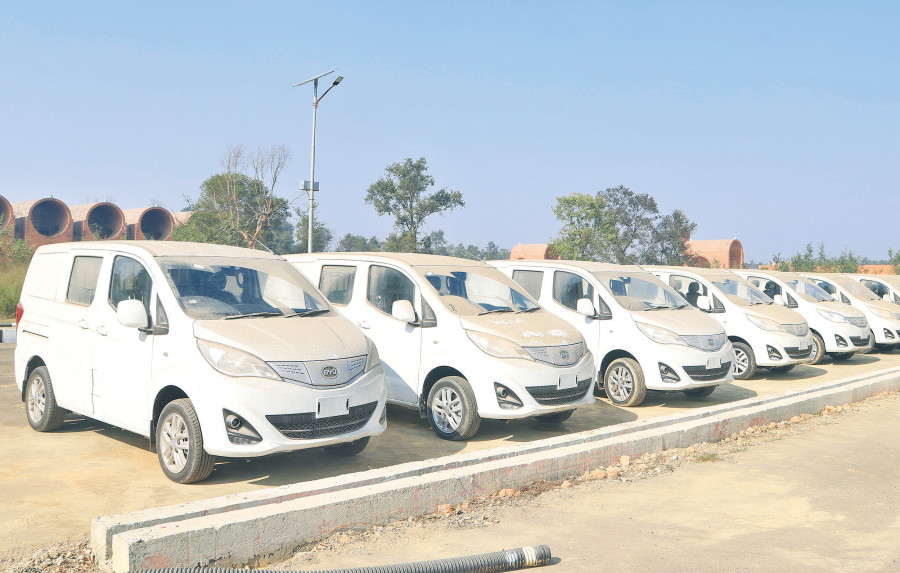Money
Automobile prices poised to rise on higher metal costs
Nepal imported vehicles and parts worth Rs44 billion in the first half of the current fiscal year.
Krishana Prasain
If you are thinking of buying an automobile, be prepared to spend more than you have planned. Car prices are set to increase by 10 to 15 percent as Nepal's largest supplier India is readying for a second-round price hike since October due to higher costs of steel, aluminium and other metals. Spare parts are likely to become costlier too, insiders said.
According to Krishna Prasad Dulal, president of the Nepal Automobile Dealers Association, hopeful car owners in Nepal will encounter the increased price burden from April.
The auto industry has been struggling for a revival after receiving a wallop from the Covid-19 pandemic, and the price hike could push recovery prospects further away, industry insiders say.
Subash Acharya, vice-president of the association, said increased prices will affect the customers and the market more as customs duties are already high.
The import duty on two-wheelers varies from 105.66 percent to 135.04 percent depending on the engine displacement. The duty on four-wheelers is between 225.44 percent and 306.8 percent, as per the Department of Customs.
The purchasing power of Nepalis has already been hit by the slowdown in economic activities, and a hike in motor vehicle prices could impact sales as banks are also not flexible on issuing auto loans, said car dealers.
“Auto imports were down last year as shipments were halted due to Covid-19 related restrictions. Now there is good demand in the domestic market, but prices are expected to increase,” Dulal said.
Dulal said many people desired to possess their own cars mainly because of the pandemic and unsafe public transportation caused by crowded conditions.
Some domestic automobile dealers are waiting for the new rates while others have already started updating their price tags.
Rupesh Sharma Bhatta, deputy general manager of Laxmi Intercontinental, the sole distributor of Hyundai Motors in Nepal, told the Post that the company had raised prices according to the new rates that went into effect on Monday.
“The price increases in the domestic market as soon as it goes up in the country of origin. The price has been increasing annually by a certain percentage,” he said, adding that the new rates would definitely be a letdown for customers planning to buy a car.
Acharya said that auto prices traditionally increase in the first and second months of the new year as the market sees a slew of new models.
Indian media reported that the auto industry was set for a second round of price hikes.
Mahindra and Mahindra, Eicher Motors and Ashok Leyland may hike prices in April-May of their products—commercial and passenger vehicles and two-wheelers—with a sharp rise in costs of steel, aluminium and other metal.
According to the Economic Times, steel manufacturers have jacked up steel prices from IRs36,500 per tonne in July to IRs52,000 per tonne in February, a jump of 43 percent.
As prices of commercial vehicles too are poised to swell, it will raise the cost of construction and development projects, said dealers.
According to the Trade and Export Promotion Centre, the country imported transport vehicles and parts worth Rs43.71 billion in the first six months of the current fiscal year, down 6.7 percent year-on-year. During the same period in the last fiscal year, automobile imports were valued at Rs46.85 billion.
In late December, the Indian forging industry wrote to the government of India seeking a ban on the export of steel and iron ore following sharp price hikes of more than 25-30 percent in three months.
Nepal imports most of its automobile and spare parts requirements from southern neighbour India.




 14.24°C Kathmandu
14.24°C Kathmandu















